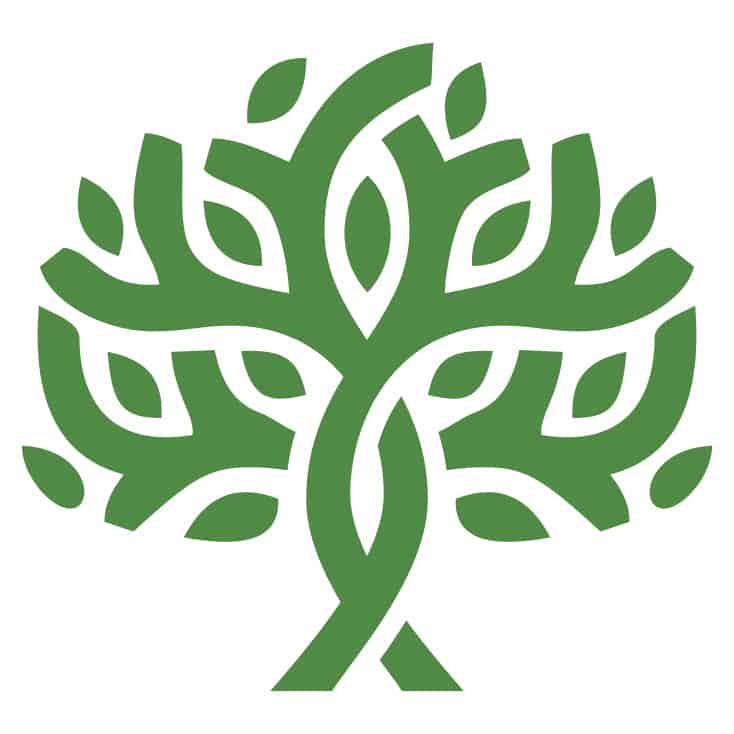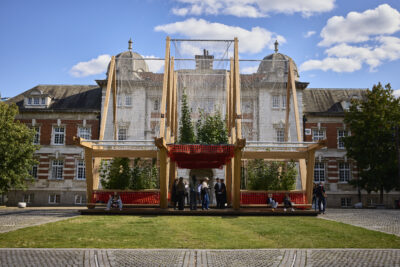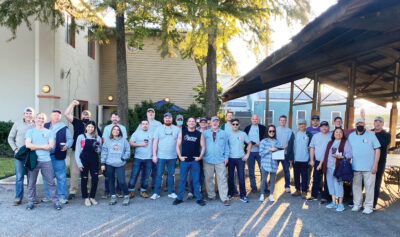According to a lumber contact, business was challenging from March to May, but with improvement in the housing sector and thus improving for the cabinet sector, business got better. He added that over August and to mid-September there was a fair bit more pick up. With the COVID-19 second wave being felt in parts of the province in early fall, could this pick up only be for the short term? He added that you can’t predict what’s going to happen with the U.S. elections in November, the outcomes of the September 2020 Speech from the Throne, trade concerns, the second wave of COVID, more impacts on the Canadian/North American economy, and more. So he’s not at all sure if improvement is sustainable or just short term. It appears that he is not alone in this way of thinking. It is a very uncertain time for all.
Several contacts reported better business over the summer months than earlier in the spring, with early fall seeing a slight decline in business. The mouldings, millwork, residential flooring and cabinet sectors have been steady, while sales to wood components manufacturers and for truck trailers have slowed. Pallet producers started off the year on a solid footing, but as COVID-19 hit, it slowed business for the next three months. Contacts noted activity is improving, however. Sawmill operators report mixed results for their log inventories. Some have ample supplies. It was noted that paper plant closures were impacting logging activity in certain areas, as well as logging of softwoods, which affected Hardwood log supplies for some mills.
Sales of Ash dropped due to a price fall for green and kiln-dried products of this species, thus mills avoided it. The lack of Ash supplies is also attributed to the Emerald Ash Borer. The decline in Ash production has alleviated price pressures on green lumber. With green output contracting over the last while, kiln-dried inventories have worked their way down.
Hard Maple continues to be in demand, although it saw a slight decline due to competition from imported species, wood composites and non-wood materials. With the continued trend to painted finishes in the cabinet sector, this is not the only species affected. However, Hard Maple continues to be sought by designers, architects and consumers for high end applications. It was noted that whitewood production during September was seasonally low. Manufacturers and wholesalers were not having any difficulty selling No. 1 Common and Better compared to lower grades.
Several contacts commented that Soft Maple sales had not been as good as last year. Some had increased their inventories over the winter and spring in anticipation of market conditions. The coronavirus slowed Hardwood sales for finished goods, thus reducing the end users’ needs. Inventories are now being worked down for most grades and thicknesses, but supplies are still adequate for secondary manufacturers and wholesalers’ needs. Prices are noted as stable.
The Liberal Government delivered its Speech from the Throne recently, promising major new investments and policy initiatives to help the country recover from COVID-19, saying that “this is not the time for austerity.” The Speech contained four foundations from which the Trudeau government would provide assistance.
1) Fight the pandemic/save lives: It will help provinces increase their testing capacity, create a federal Testing Assistance Response Team to quickly meet surge testing needs, including in remote and isolated communities. To help ease impact on local businesses who may need to enact shortterm closure orders, it will target additional financial support directly to businesses which have to temporarily shut down as a result of a local public health decision. The Government has already invested over $19 billion for a Safe Restart Agreement with provinces and territories, to support everything from the capacity of health care systems to se curing PPE (personal protective equipment).
2) Support people and businesses through crisis: Launch campaign to create over 1 million jobs. Additionally, as small businesses are the backbone of the economy and lifeblood of communities, it introduced a range of supports for Canadian businesses, from help with payroll through the Canada Emergency Wage Subsidy to assistance with expenses through interest-free loans. In addition to extending the wage subsidy, the Government will take further steps to bridge vulnerable businesses to the other side of the pandemic by: expanding the Canada Emergency Business Account to help businesses with fixed costs; improving the Business Credit Availability Program; and introducing further support for industries that have been hardest hit.
3) This fall, the Government will release an update to Canada’s COVID-19 Economic Response Plan. It will outline its economic and fiscal position, provide fiscal projections, and set out new measures to implement this Throne Speech.
4) Work with the provinces and territories to invest in training for workers. This will include: supporting Canadians as they build new skills in growing sectors; helping workers receive education and accreditation; and strengthening workers’ futures, by connecting them to employers and good jobs, in order to grow and strengthen the middle class.






